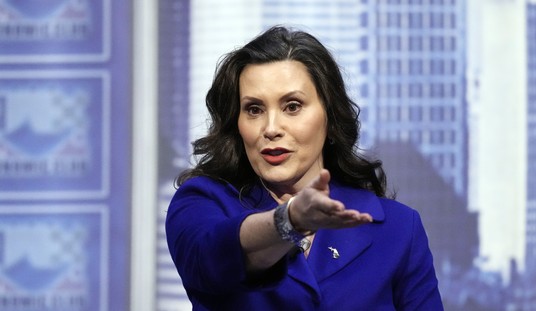
Let me preface this by saying that I am a white Catholic in south Louisiana, which at times feels like it’s just behind the Vatican and Notre Dame in the race for Most Catholic Places On Earth. I do not know what it’s like to be targeted because of my religion, my race, even my political beliefs (despite being a public school teacher).
So, when I read the initial piece at National Review that would set off a controversy over normalizing anti-Semitism, I almost missed the point that drew so much anger. That the author himself is Jewish, which is one of the (many) issues that left people scratching their heads (at best).
The ultra-Orthodox population is also a heavy user of government resources such as Medicaid and food stamps. This is due to the perception that many of the men either don’t work or make low salaries, choosing instead to devote their time to studying religious texts.
Because of the way that paragraph is written – no context for the belief and therefore seemingly in the author’s own words – it appears as though he is endorsing the view. The next paragraph, which attempts to add context, only further cements the idea that the author might be saying “Yeah, maybe the victims deserved it.”
“Many in the community look at the Hasidim as locusts, who go from community to community . . . just stripping all the resources out of it,” said a Jewish, but not ultra-Orthodox, resident of upstate New York. The resident, who vociferously objects to ultra-Orthodox development and asked not to be named for fear of retribution by the ultra-Orthodox community, added that “nobody here doesn’t like them because they’re Jews. People don’t like them because of what they do. Rural, hardworking people also want to live our lives too.”
A lot of the blame is not only being put on the author, but at National Review and its editors for letting the piece run at all. I’ll not make a judgment one way or the other, because I’ve been an editor at outlets before where pieces have run that I thought didn’t need to see the light of day (that includes here at RedState).
Because of who I follow on social media, I don’t see a lot of outrage that comes from people who hate National Review regardless and are just on their talking point of the moment. However, I do follow a number of conservatives who are also Jewish, and they are, I think, rightly offended by how the article was written and presented. Still, I think National Review was on the right track in terms of bringing context to what’s going on in New York and New Jersey – something our media at large seems to want to ignore because it doesn’t follow certain narratives they’ve built up over the years.
What I find more irritating, though, is a follow-up commentary by National Review’s Kevin Williamson, whose approach of “you are acting stupid” to most things/people he disagrees with doesn’t play well in this context.
I am frankly embarrassed that we’ve found it necessary to append a note to Zachary Evans’s report on anti-Semitism to emphasize that quoting a person to illuminate his sentiments does not constitute an endorsement of those sentiments. That’s obvious. Every mentally functional adult is able to understand as much. But because there are people who want to smear National Review for political purposes, they pretend that an article about anti-Semitism written by a veteran of the Israeli military is itself an exercise in anti-Semitism. I have a hard time believing that is an honest error, because people dumb enough to make an error like that, and make it honestly, can’t read.
Like I said, we’re talking about people who belong to a group that is literally being murdered for its religious practices. This isn’t a group of political hacks trying to punch-up, as Williamson claims.
We get this a lot around here. National Review publishes a lot of different writers with a lot of different views. National Review also has influence and market share that is coveted by also-rans in right-wing media trying to punch their way up to Fox News contracts. And so what I think about x, or what Jay or Rick or Jason or somebody else around here thinks, becomes “National Review endorses x.”
I have a tremendous amount of respect for guys like Seth Mandel and Eli Steinberg, along with other Jewish conservatives who have expressed disappointment with the piece. To say that any of these are “also-rans in the right-wing media trying to punch their way up to Fox News contracts” is as offensive and blatantly false an insult as it gets.
What’s worse is that, in the face of criticism on this of his response, Williamson responded again, insulting the people who were insulted in the first place – like Bethany Mandel, who wrote a critique of the initial report at Ricochet – by calling them “ridiculous and dishonest.”
I fully get the need/compulsion to defend colleagues and organizations you with with/for. I just think you can do it without insulting the people attacking them. When you do that, you stoop down to the level of the type of person you are accusing them of being, and that makes Williamson’s piece the most pointless piece to write in this situation (perhaps next to mine, which is just a commentary of a commentary of a commentary of a news item). Williamson does make valid points, but when you are calling everyone who disagrees with the publishing of the article an idiot or a MAGA-esque caricature, you are making generalizations about a good many people who are not.
It’s part of a larger problem we’re seeing in political discourse, where we are entirely discounting an entire group and insulting those who disagree with us solely on the actions and assertions of a few. These sweeping generalizations are the same kind that outraged us when we were called racists for opposing Barack Obama (not to mention the even more insulting things we’ve been called before and since). They are the same sweeping generalizations, in fact, interpreted from the initial piece that set the whole controversy off.













Join the conversation as a VIP Member